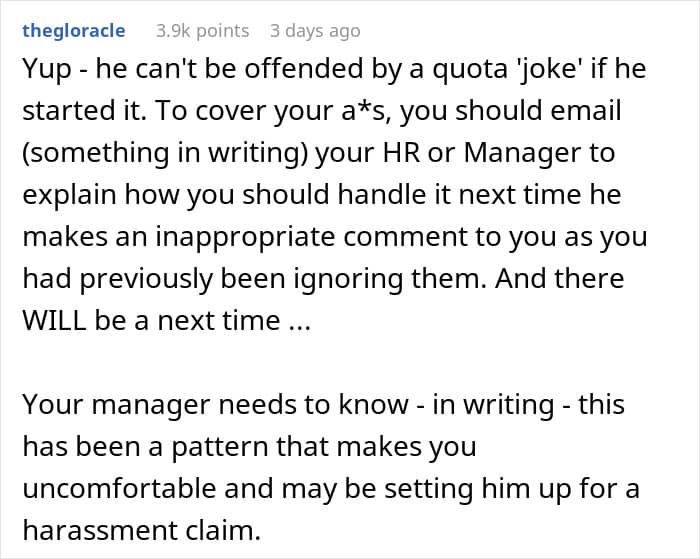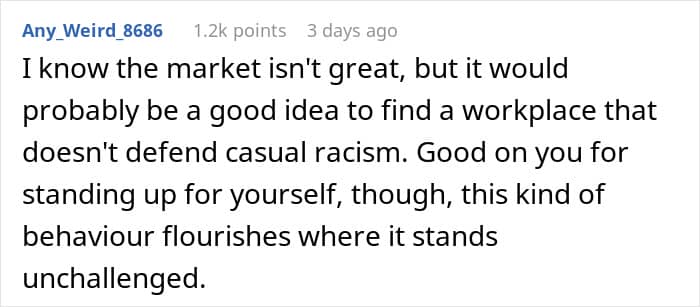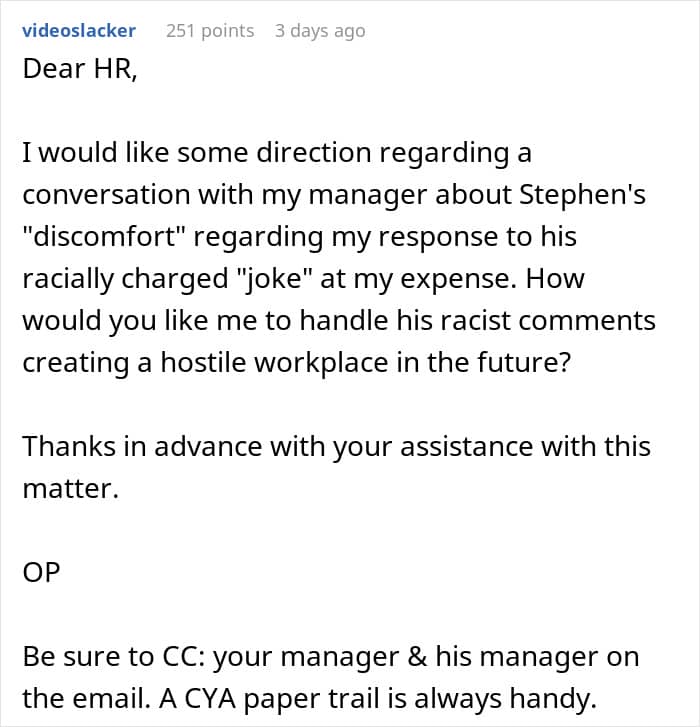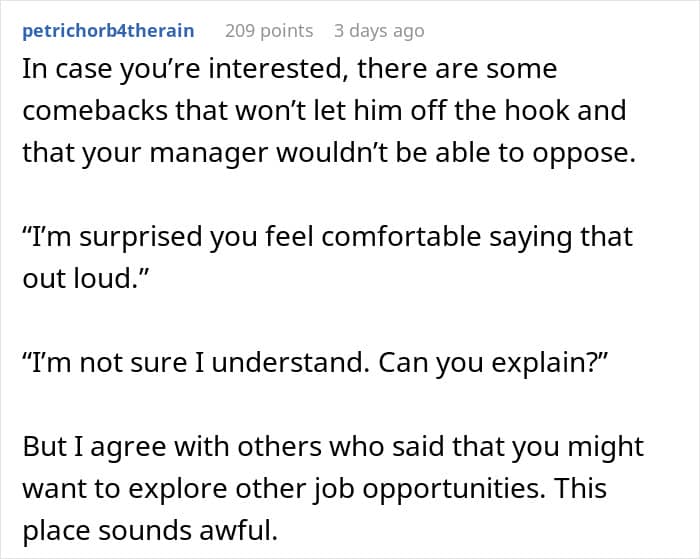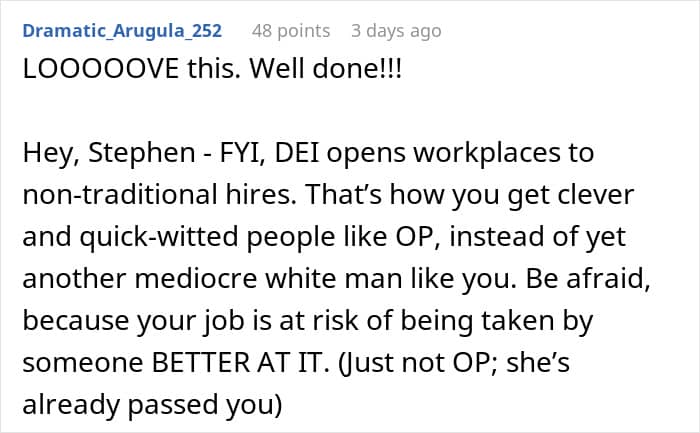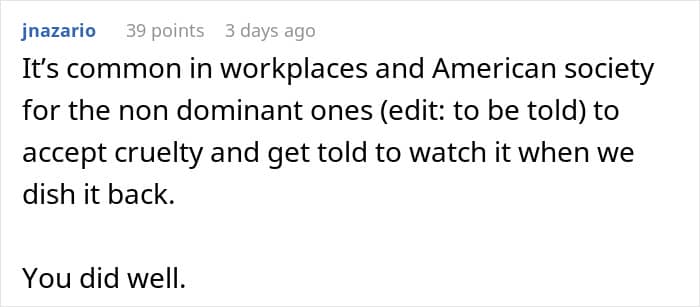When a company employs you, your job is more than just logging into your computer and attending meetings. You’re also expected to contribute to the workplace’s culture, which can be really difficult if you’re surrounded by toxic people!
A few days ago, Reddit user Relevant_Ad6975 made a post on r/TraumatizeThemBack describing the recent exchange she had with a particularly rude colleague.
He wouldn’t stop making racist comments about her—or as he called them, jokes. However, after the woman finally had enough and replied in the same tone, the guy immediately complained to management.
This woman got sick and tired of her colleague’s racist remarks

Image credits: freepik (not the actual image)
She decided to start speaking to him in his own “language”
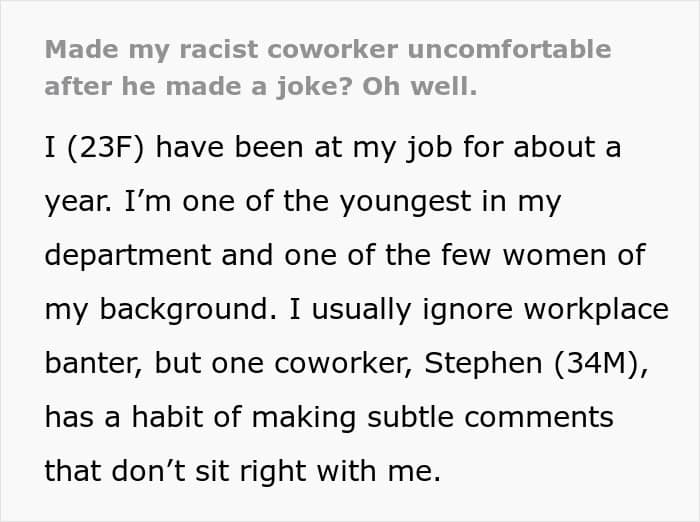
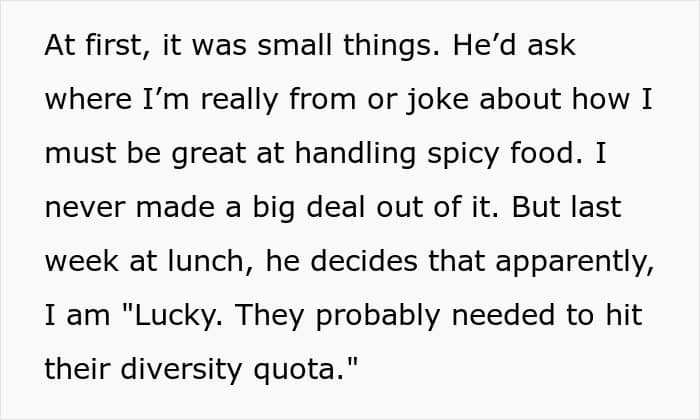

Image credits: freepik (not the actual image)
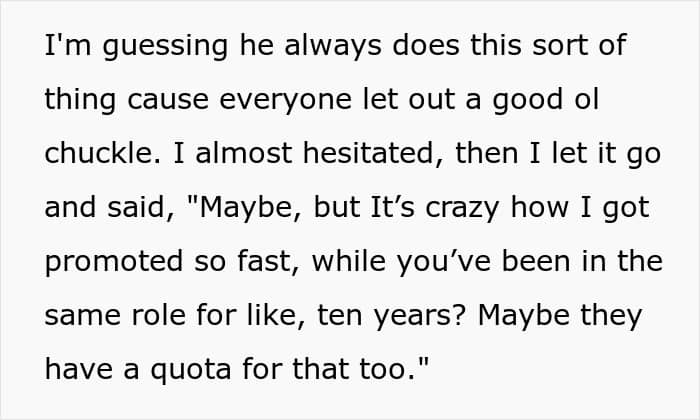
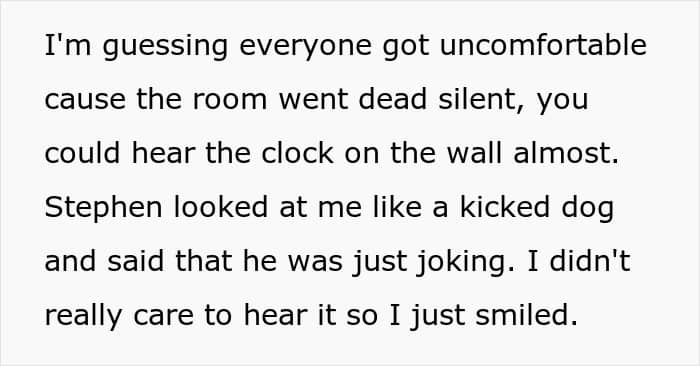

Image credits: cottonbro studio (not the actual image)
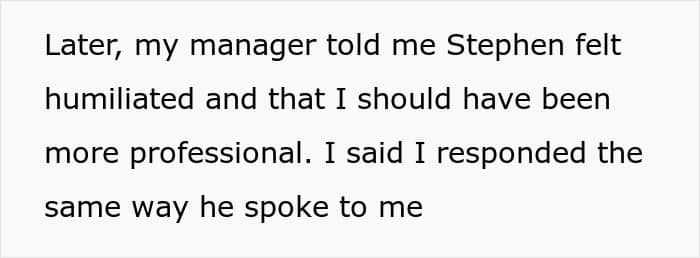
Image credits: Relevant_Ad6975

Racism has no place; not just in the workplace, but anywhere in the world
According to a 2024 study of almost 3,000 employees, 85% of people have worked with at least one annoying colleague at some point in their career. The most common ones are:
The credit stealer (33%): They undermine team spirit and create an environment where it’s unsafe to share new ideas and people feel undervalued.The micromanager (32%): The person who just can’t let go and constantly hovers over your work. It’s hard to feel capable and motivated when they’re always second-guessing your every move. Their presence often leads to resentment and can take a serious toll on productivity.The chronic complainer (30%): These people can find a downside to even the best situations, and their constant negativity can become infectious, spreading gloom and lowering team morale.The personal space intruder (30%): We value our independence, especially in a busy setting. However, some seem to constantly find a way to make the workplace feel stressful and intrusive.The lunch thief (27%): The sheer audacity of swiping someone else’s food makes the lunch thief a particularly frustrating presence in the workplace.
Racism, on the other hand, isn’t just an office issue—it has no place in our society at all. Still, the Gallup Center on Black Voices found that about one in four Black (24%) and Hispanic employees (24%) in the U.S. report having been discriminated against at work in the past year.
Nika White, a Greenville, S.C.-based anti-racist activist who runs her own diversity and inclusion consulting company, believes that racial micro-aggressions are particularly problematic in workplaces.
“Numerous workers are encountering subtle micro-aggressions that leave them feeling confused, hurt, angry, and deflated without anyone to talk to because the ‘aggression’ seems small,” she explained. “Those seemingly small interactions that come from stereotyping and assumptions have a lasting physical and mental impact but are harder to identify and recognize, especially when workplaces exhibit institutional racism by not having policies and processes to prohibit and punish racism.”
Racial trauma can result in symptoms similar to post-traumatic stress disorder (PTSD). It can lead to mental health issues such as anxiety and depression as well as physical problems including stomachaches, headaches, and a rapid heartbeat.
As her story went viral, the woman provided more information on the conflict
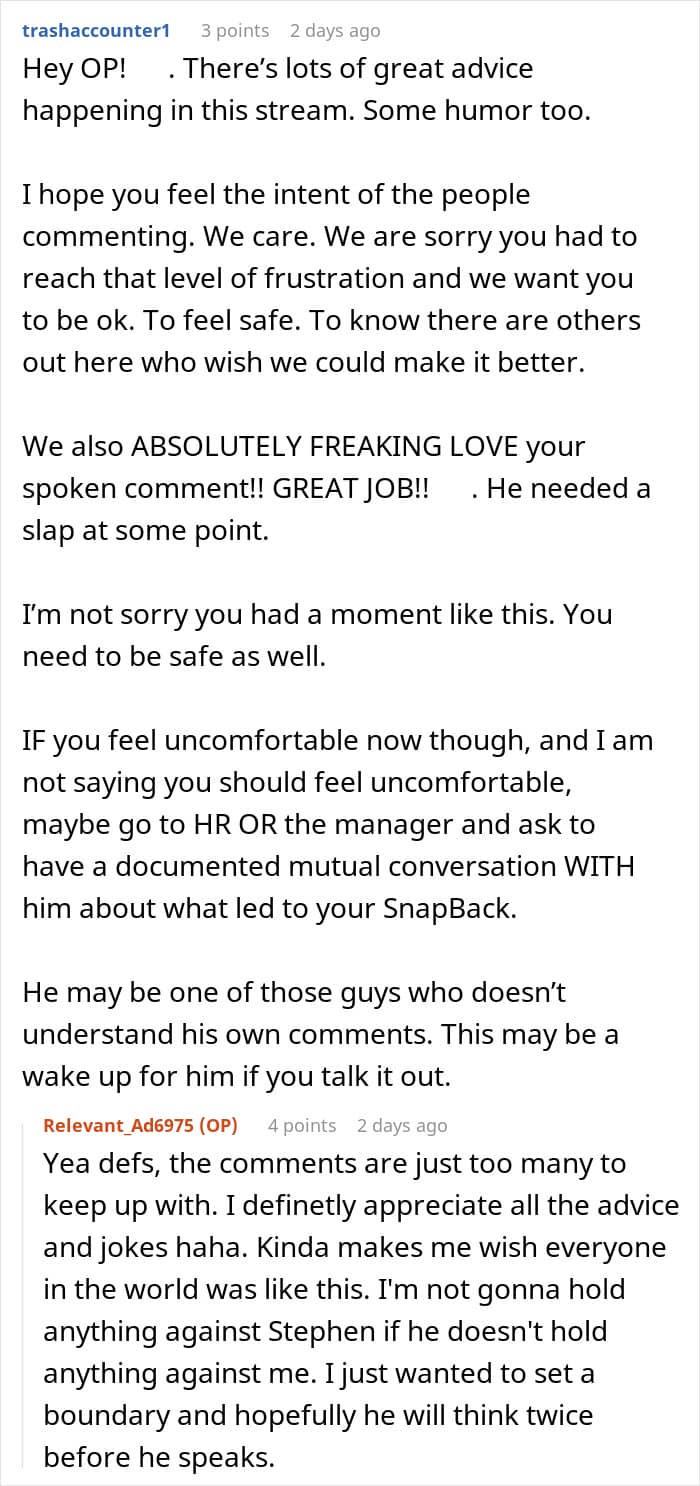

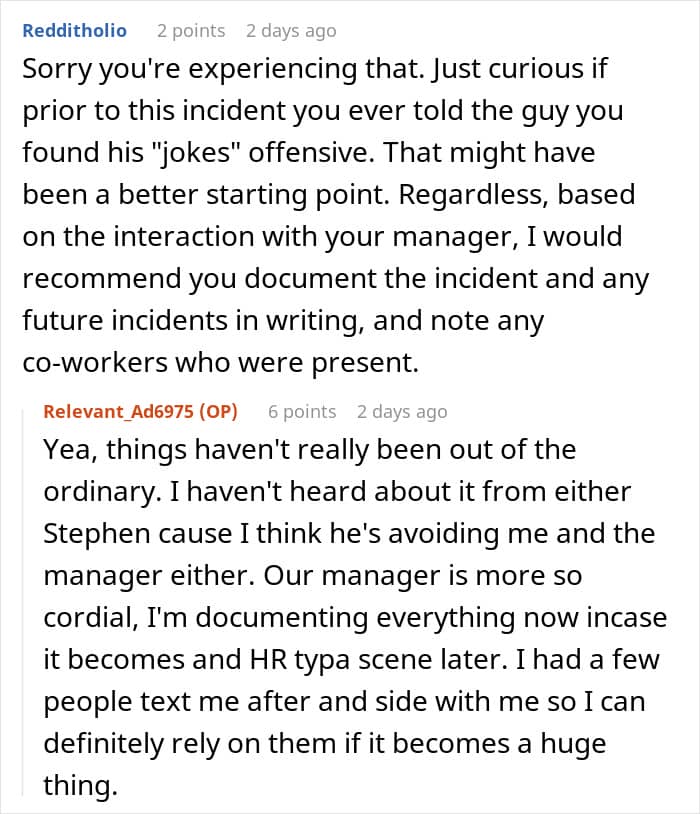
People were happy to hear the guy got a taste of his own medicine

